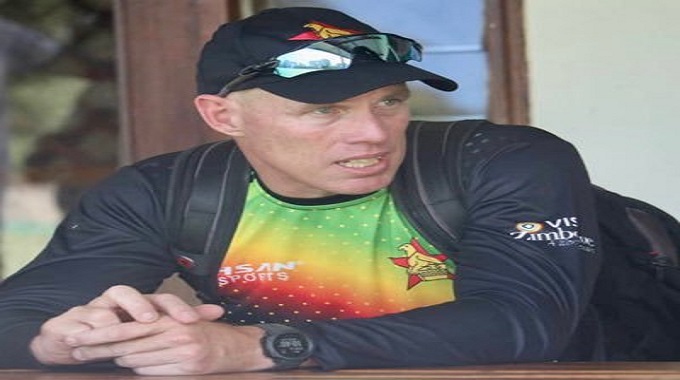Matabeleland districts benefit from US$250k water project

Sikhulekelani Moyo, Business Reporter
MORE than 15 000 people have benefited from a US$250 000 project initiated by Institutional Water, Sanitation and Hygiene (WASH) for Health Initiative spearheaded by the Coca-Cola Foundation in partnership with Save the Children, which has seen communities getting access to clean and safe water.
The initiative has been implemented in four districts, which are Matobo, Binga, Beitbridge and Kariba.
Speaking during the official handover of the finished project at Maphisa Hospital in Matobo District yesterday, Matabeleland South acting director for Local Governance Mr Peter Mahlathini, on behalf of Matabeleland South Permanent Secretary for Local Government, Mrs Latiso Dlamini-Masuku, said the project has seen beneficiaries getting reliable, safe and clean water through rehabilitation works and installation of solar-powered piped water.
“I’m happy to be here today to receive this generous donation from Coca-Cola Foundation through Save the Children on behalf of the Government of Zimbabwe and the community at large,” said Mr Mahlathini.
“Through the Institutional WASH for health initiative project, more than 15 000 people from Matobo, Beitbridge, Binga and Kariba have benefited from reliable, safe and clean water supply.”
Mr Mahlathini said the WASH initiative ensures good health and well-being of communities in order for them to be able to sustain development and work towards attainment of an upper middle-income economy by 2030.
Coca-Cola and Save the Children have also initiated “Tomorrow is Bright,” a project, which is meant to empower women and youths through skills development and business start-up kits.
Mr Mahlathini said the project is contributing to the 12 macro-economic targets through the development of youth entrepreneurial skills.
“This will create both formal and informal jobs whilst also accelerating value addition and beneficiation of agriculture products, which is the foundation of agricultural production and a key element in rural economies transformation.
“This will in turn enhance the resilience of many families through the strengthening of social safety nets as highlighted in Agenda 2063,” he said.
Speaking at the same event, Coca-Cola franchise manager for Zimbabwe Mr Archibold Ndlovu said access to clean and safe water is critical at a time the country is fighting water-borne diseases like cholera and typhoid.
“Projects like this, built on the success of the Coca-Cola Foundation replenish Africa initiative as it provides access to clean and safe water to about six million Africans in more than 4 000 communities across 41 countries,” said Mr Ndlovu.
“The strategy emphasises sustainable and efficient water usage, improving local water challenges and partnering with others to improve community water resilience.”
Save the Children country director Ms Heather Kerr said it was hard for Covid-19 patients to fetch water outside but through the WASH initiative, they now have clean water inside their wards.
She said the WASH initiative came as a follow up to previous water and sanitation projects, which were done in past years by Save the Children to ensure that hospitals have access to safe and clean water.
“The water supply help also in supplying nutrition gardens and this can help as those who have gardens can sell their produce and pay for school fees.
“In Beitbridge District we have piped water scheme, which covers secondary schools, primary schools and clinics and we want to pump it to the gardens to cover the whole community,” said Ms Kerr.
The WASH initiative was launched early this year in Harare and implemented by Save the Children Zimbabwe and the projects saw the installation of solar powered piped water systems, complete with water storage tanks at Maphisa District Hospital in Matobo and Siakobvu Rural Hospital in Kariba.
Three other rural health centres – Msampakaruma in Kariba, Chikwalakwala in Beitbridge and Chinego in Binga District – also received the same support.
The five health centres serve approximately 15 000 people in their catchment areas who have improved access to clean water for patients and staff as they also serve as Covid-19 isolation centres. – @SikhulekelaniM1










Comments